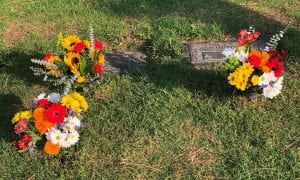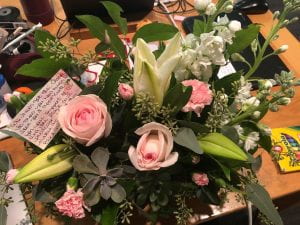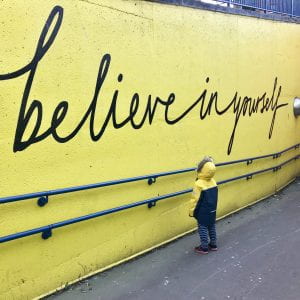It’s been a long week, full of humanity.
Way back in February, I gave a TEDx talk on humanizing pedagogies, which in short asked what might happen if we re-conceptualized our perception of excellence, specifically educational excellence, but generally was really talking about what happened if we really started listening to and learning from one another. This week, that talk finally went live on the TEDx YouTube channel, an exciting moment I’ve been waiting for, well, throughout the entire pandemic-borne time of social distancing.
It dropped on a day when I had a very human and humbling moment, saying something out of frustration that didn’t assume the full humanity of a student, within virtual earshot of the student. I took responsibility and owned the impact of my words, but it certainly was not a shining star moment, and it led to a restless night and some good use of the skills I’ve been working on in therapy.
I realized that my reaction to this student, my assumptions of intention, my frustration was bred from my own sense of internalized perfectionism and internalized expectations of performance. This happens a lot when there are situations in which I feel I am dealing with entitlement or where I am working to meet someone 95% of the way, and they want me to move even further. I feel angry, angry that I’ve had to work so hard to get to where I am when others feel that they deserve time, energy and efforts that I have given and given and given at the expense of myself and my family.
Tonight, I read responses from a survey designed to get feedback from students about their online learning experiences. When one student responded, “Nothing” to the question of what professors, the program and university had done to support his online learning, I felt struck, as if all of the efforts that I have put into making this semester work for us all meant nothing.
I also feel these feelings, this frustration, sometimes towards my family, like all I do to keep us afloat, to support their learning and growth as human beings, to love them in the midst of big feelings I am struggling with, is not enough.
I know this is misdirected anger at myself. I hear the echoes of their humanity, or see them struggle and I feel a sense of my own inadequacy.
But it is not inadequacy, it is humanity.
They are teaching me humanity.
This weekend, I posted a Twitter thread after listening to a beautiful conversation that the Black Gaze Podcast (Drs. Shamaine Bertrand & Kisha Porcher) had with Dr. April Baker-Bell about Black language and linguistic justice. Hearing this conversation reminded me of where the internalized perfectionism and expectations of performance came from. It reminded me that these words that I swallow, that only rarely escape (and that I beat myself up for when they do), that this anger, comes from internalized oppression, from years of not feeling good enough around a society that I tried to prove my worth to, instead of accepting that my worth was in me.
Here’s the thread (revised slightly because I caught grammar mistakes in the first tweet that irritated me so I have to correct them now):
Let me tell you, I am declaring being done w/ the shame spiral & apologizing for my #AsianAmerican identity. There’s a lot of work to do as a community, but we can’t do that work if we can’t acknowledge that shame is part of white supremacy that keeps us in our place/
First, I want to shout out Black feminist & linguistic scholars, including the fantastic @BlackGazePod convo w/ Dr. @aprilbakerbell, @DrPorcher & @dr_s_bertrand. Your unapologetic stance that Blackness will save Black people reminds me to stand in my own truth/
Okay, and also shout out to the fantastic essay by @poetpedagogue that reminds me that we cannot abolish systems that promise us opportunity if we play by the rules until we conquer our own internalized oppressive mindset/
So here’s the thing, like many #AsianAmericans, I have made choices, my parents & ancestors made choices. For me, those choices have been rooted in assimilation for survival bc they thought it was the best option/
I am making different choices for myself & my own children, to embrace who we are and reclaim our complicated identities as #AsianAmerican as #TaiwaneseAmerican, as descendent from Han colonizers of Taiwanese indigenous people/
As people who have made choices or had choices made for us that separated us from linguistic identities that themselves were cloaked in language and cultural oppressions that we don’t know, but are our histories/
But I am not ashamed. Part of humanizing ourselves & others is the true belief that people do the best they can w/ what they have & that people, even the best of them, have human moments. When we know better, we must do better, but sometimes even then, we stumble/
Now, what there is for me to do, is the hard work of reclamation, of building community from an insider-outsider space, of listening/ learning/ seeking/ speaking, not from a space of shame, but from one of power, of visibility w/o performance/
Last thank you to @DrK_WhiteSmith for reminding me that we can be responsible for our actions w/o apologizing for ourselves. #Nomoreapologies for my existence. I will own my mistakes & my humanity, but I refuse to apologize for who I am. /end
—-
Today, I went to put flowers at the gravesite of my foremothers (my mother, grandmother and aunt). Their strength gives me the strength to demand better for myself and for my children, even though I will falter along the way. Even though they faltered along the way.
We are always only human. We are always only learning.
And I am holding space for myself to be however I am, even when I am so imperfect.
And I am proud to be who I am, even when I am so imperfect.
This is the hard work of reclamation.
Reclaiming space to be exactly who I am, in each moment.
Holding space and striving to be in integrity with my most powerful, generous, and loving expression of self.
And loving my full humanity.




